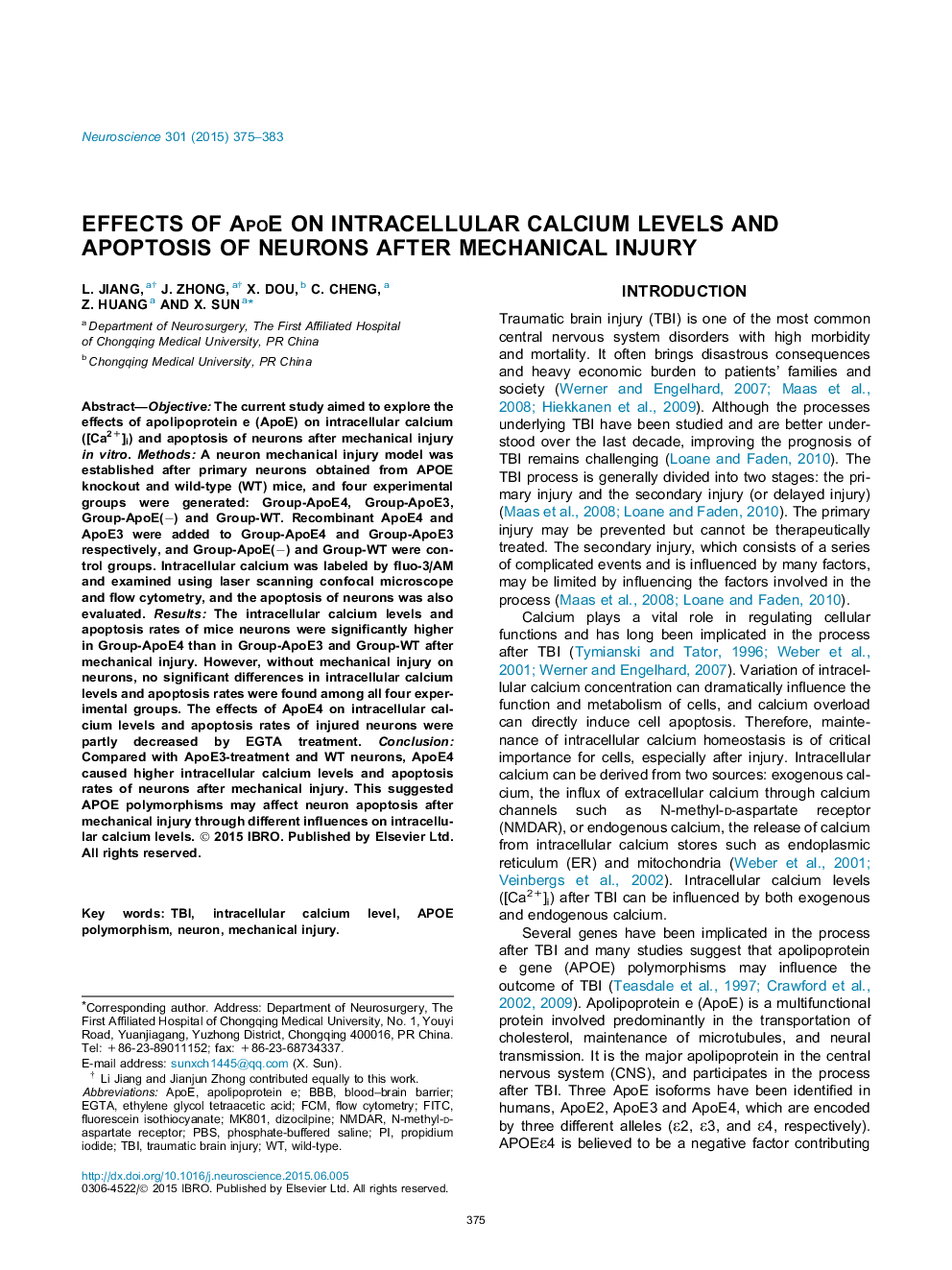| Article ID | Journal | Published Year | Pages | File Type |
|---|---|---|---|---|
| 6272092 | Neuroscience | 2015 | 9 Pages |
â¢We study the influence of exogenous ApoE on intracellular calcium levels of neurons after mechanical injury.â¢Significant higher [Ca2+]i and apoptosis of neurons can be caused by ApoE4.â¢Both intracellular and extracellular calcium may be involved.â¢This may be one of the possible mechanisms through which APOEε4 influences the outcome of TBI.
Objective: The current study aimed to explore the effects of apolipoprotein e (ApoE) on intracellular calcium ([Ca2+]i) and apoptosis of neurons after mechanical injury in vitro. Methods: A neuron mechanical injury model was established after primary neurons obtained from APOE knockout and wild-type (WT) mice, and four experimental groups were generated: Group-ApoE4, Group-ApoE3, Group-ApoE(â) and Group-WT. Recombinant ApoE4 and ApoE3 were added to Group-ApoE4 and Group-ApoE3 respectively, and Group-ApoE(â) and Group-WT were control groups. Intracellular calcium was labeled by fluo-3/AM and examined using laser scanning confocal microscope and flow cytometry, and the apoptosis of neurons was also evaluated. Results: The intracellular calcium levels and apoptosis rates of mice neurons were significantly higher in Group-ApoE4 than in Group-ApoE3 and Group-WT after mechanical injury. However, without mechanical injury on neurons, no significant differences in intracellular calcium levels and apoptosis rates were found among all four experimental groups. The effects of ApoE4 on intracellular calcium levels and apoptosis rates of injured neurons were partly decreased by EGTA treatment. Conclusion: Compared with ApoE3-treatment and WT neurons, ApoE4 caused higher intracellular calcium levels and apoptosis rates of neurons after mechanical injury. This suggested APOE polymorphisms may affect neuron apoptosis after mechanical injury through different influences on intracellular calcium levels.
